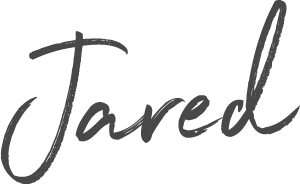So, you’re starting to make some decent money. You’ve gotten a few raises at work (“How To Ask For A Raise At Work” – Podcast, Article), maybe even that promotion you’ve been after; and are wondering what you should do with that extra cash.
If you think like I do, you’re probably considering ways you can use that extra money to build wealth and create financial freedom (How To Find Your Financial Freedom Number).
For anyone with a corporate job, there is a strong chance your employer offers a 401(k)-retirement plan. And they most likely offer some sort of match.
But how much should you put into your plan? Should you be maximizing your contributions?
Today, that’s what we’re going to discuss.
WHAT IS A 401(K)
A 401(k) plan is a retirement account in which you can contribute either pre-tax or post-tax dollars, and use those to save and invest for retirement.
In 2018, the current contribution limits are $18,500 for anyone under 55, and $24,500 for anyone over.
The 401(k) plan has been one of the main vehicles used to save for retirement in recent decades.
For more info on 401(k) plans, click here!
FREE MONEY
In 2017, company matches for 401(k)s averaged close to 5%. Every plan can be different, but if your plan offers a dollar-for-dollar match, then you would receive 5% from your company for contributing 5% of your salary. In essence, you could get 10% of your salary put into a 401(k) and only have to contribute half that amount. Basically, it’s free money!
I like free money. I hope you do too.
It is rarely a bad idea to contribute enough into your 401(k) plan to make sure you get the full match. This way, you aren’t leaving anything on the table and missing out on free money from your employer.
But back to our original question. If you have the ability, should you be putting in the full contribution amounts into your 401(k)?
PROS AND CONS
Some of the things to consider when making this decision are as follows:
- How good are the investment options in the 401(k) plan? Are you fine with investing in mutual funds, ETFs, etc., or would you like to put your money into other areas that aren’t typically allowed in a 401(k), like real estate?
- What is the cost of the plan versus using an IRA or another outside savings vehicle?
- Asset protection
INVESTMENT OPTIONS
One problem with a lot of 401(k) plans is that they have limited investment options. It’s not uncommon for a plan to be limited to less than 20 options.
This can be a good and bad thing, depending on how you look at it.
But if you’re a person who likes to do their own research, and really dig in and find the option you are comfortable with, having a limited selection might be a turn-off.
Also, by using outside investment vehicles, like a self-directed IRA, you can invest in things like real estate.
COST
In a survey of 22,000 plans conducted between 2009 and 2014, Brightscope and The Investment Company Institute found that the average plan-weighted cost was 0.97%. But there can be a big variance depending on the size of your plan.
If you don’t monitor the costs of the investment vehicles you are using, the negative affect can be quite large over the course of a full career. You don’t want to be overpaying for any account you are using.
ASSET PROTECTION
Something most people aren’t aware of is the asset-protection benefit of retirement plans, like a 401(k).
Due to certain Federal laws, your 401(k) assets are blocked from the majority of creditors, both in a bankruptcy and non-bankruptcy proceeding.
If you have investment assets in an IRA, or even a general brokerage account, the level of protection may be much less, depending on which state you are in.
Hopefully you never have to deal with creditors. But for those who do have that potential, this can be a big sticking point.
CONCLUSION
There are a number of factors that go into answering if you should max out your 401(k) contributions or put your money elsewhere.
For the majority of people, it makes sense to get your full company match, and then consider putting your money outside of the 401(k) in other places, like a ROTH IRA.
If you’re purely looking to grow wealth, and not afraid to do some work, I think there are serious benefits to putting your savings to use OUTSIDE of your retirement plan.
If you really don’t want to deal with any extra work, then maybe keeping things simple and putting more of your assets in your 401(k) plan is the better idea.
Capably Yours,
















